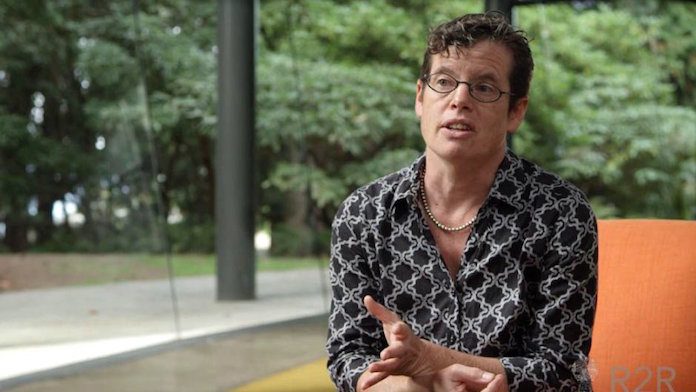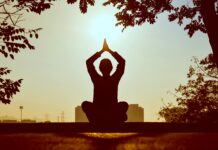Sally Otto is a Professor in the Department of Zoology and Director of the Biodiversity Research Centre at the University of British Columbia. We asked her everything from why she chose her field of study to what’s on her playlist in hopes of giving you a better understanding of what goes on outside the lab for one of the best minds in Canadian research.
What inspired you to become a scientist?
The unknown. Realizing that there were puzzles – fundamental questions about the biological world – that remained unanswered. Peering across that intellectual boundary of what was known versus unknown and discovering that together we could push science forward a little bit across that boundary.
As a high school student, I loved the logic of genetics and the explanatory power of evolution. Reading Mendel and Darwin impressed upon me that such puzzles could be solved by logic and experimentation. But determining the right type of scientist to become took some trial and error. At University, I did molecular work, field work, genetic crosses, before finding the area that would become my research passion: mathematical modelling of evolutionary change. I credit my fantastic undergraduate mentor, Dr. Ginny Walbot, for providing me with an array of research opportunities that allowed me to find my way and for recognizing what might be the perfect match for me.
What do you like most about being a scientist?
What I still enjoy most is what drew me to science in the first place: discovery and puzzle solving. I particularly enjoy when models help illuminate errors in our thinking, causing us to reevaluate our understanding, and transforming initially counter-intuitive results into a new understanding about a system.
Another joy comes from helping guide (and learning from!) students as they traverse the boundary between what is known and unknown.
What do you envision in the future of your field?
Evolution as a field has transformed over my career, from a specialized subject to a key to understanding all of biology. Concepts that were once fairly obscure terms in the field – linkage disequilibrium, introgression, local adaptation – are central to finding diseases, interpreting genome architecture, and understanding whether and how species keep apace of a changing environment. What I hope for the future is better integration across areas of biology so that ideas and discoveries can cross-fertilize fields more rapidly.
How will your research make a difference in our lives?
There is increasing pressure for organisms to adapt to changes wrought by humans, from climate change to habitat fragmentation to wide-spread introductions of non-native plants and animals. My research, as well as that of other evolutionary biologists, is helping define the limits of adaptation. What evolutionary transitions are accessible and what are impossible? What is the chance that an organism persists in a changing environment, and how does its persistence depends on aspects of its biology – its life history, genome architecture, and mode of reproduction. Dobzhansky once said that “nothing in biology makes sense except in the light of evolution” — but that only holds true when we understand evolution correctly. Improving our predictions and models of evolutionary processes allows us to shine more accurate light on other areas.
Truly, though, it is hard to predict how science will be used. Models that we built to quantify the effects of traits on speciation and extinction across the tree of life, for example, have since been used to estimate transmission rates of HIV and to identify “superspreaders.”
What advice would you give young researchers?
Find what you love doing and thinking about in science. The motivation that comes from caring deeply about the work that you do will see you through the many rough spots – failed experiments, models that do not crack, papers that are rejected, awards that are not won. Recognizing that those rough spots are a sign that you are trying something hard, something beyond what is safe and easy, can help too.
What do you consider your greatest achievement?
I don’t know yet. I don’t really think about it that way. I am proud that, through my courses, my guidance of research, and the book that I wrote with Troy Day, I have made math more accessible to biologists. Math can and should be a tool that any biologist can use to shed light on their study system.
What do you read?
Fiction — I particularly like immersive books that tightly bind you to the main characters. Right now, I’m reading “The Eyes were Watching God”, by Zora Neale Hurst, one of the first women African American authors. Before that, I read “The Tenant of Wildfell Hall” (1848) by Anne Brontë, which tells the story of a woman who refused to have her life and child ruined by her husband’s alcoholism and philandering and is considered to be one of the first feminist novels. I also recently read and enjoyed the four book series by Elena Ferrante about the close ties and deep jealousies that permeate the lives of two childhood friends.
What’s on your iPod?
Lots of David Bowie at the moment!
If you could meet any historical figure who would it be and why?
If only I could be on the Beagle during Darwin’s voyage! Seeing how Darwin pieced together the process of evolution, witnessing that creativity and synthesis, couldn’t be beat.
That said, I feel extraordinarily privileged to be working today. First, I can work and pursue science, something that was not an option for many women in my mother’s generation. Second, what an amazing time to be an evolutionary biologist. With massive advances in computers and genomics, we can track evolutionary changes at the species level and zoom in to determine exactly how, at the molecular level, those changes occurred.
If you could do any profession other than your own what would it be?
Medicine and psychology fascinate me. It would be super cool to be an inventor.
What do you like to do for fun?
I like being with my family, my partner and our son (13 going on 23). I have a passion for playing soccer (I just wish I had the talent to match), and I still play on a great team in the Vancouver Women’s league (go Geckos!). I like helping others, I like spending time with friends, and I like travelling and exploring.
Want to learn more about Prof. Otto’s research? Check out her Orange Chair Interview on observing evolution within hours.











































